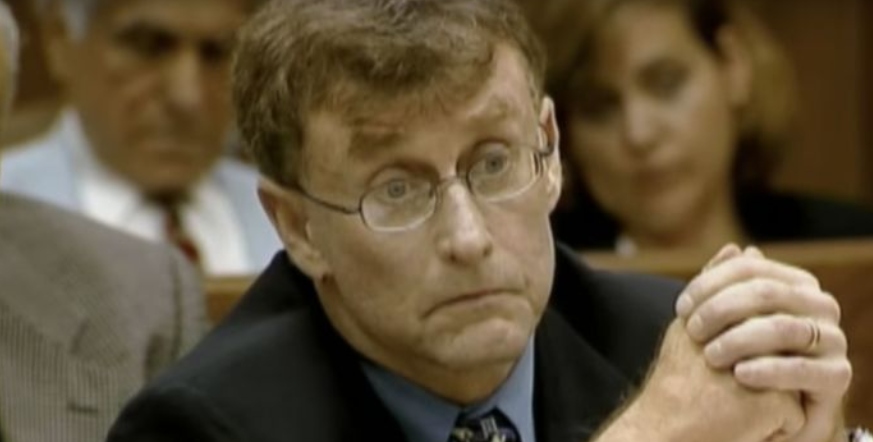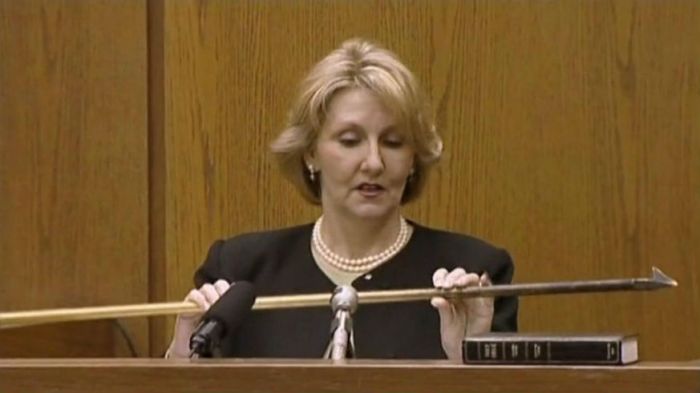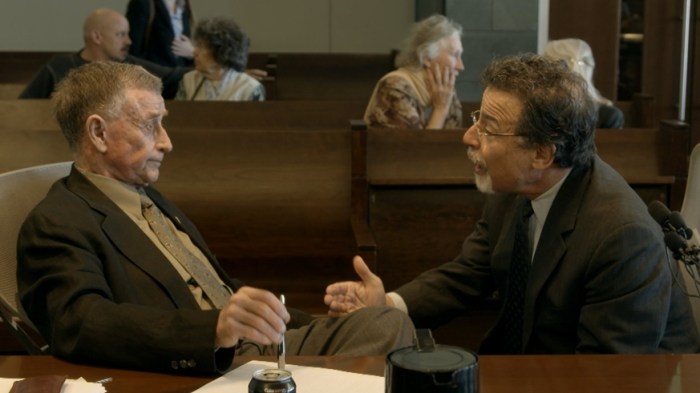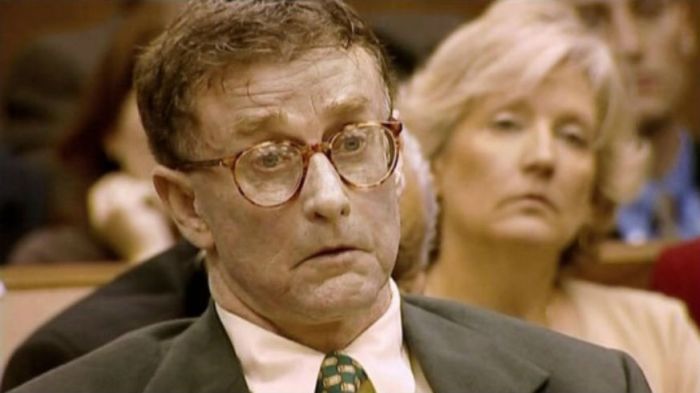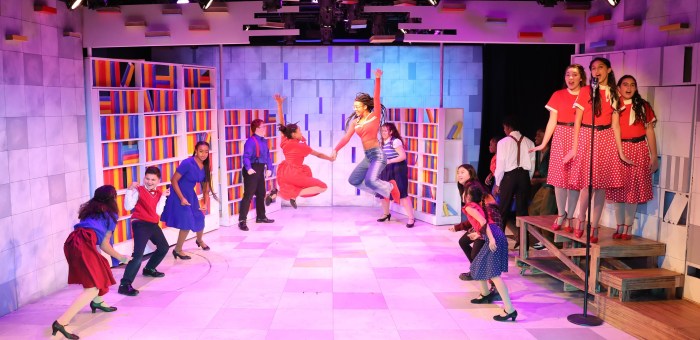Warning: There are SPOILERS ahead for The Staircase, specifically from the 13th and final episode of the Netflix crime documentary epic.
So if you haven’t watched the meticulously and all-encompassing examination of the trial of Michael Peterson then please proceed cautiously.
“The Staircase” is full of intense moments from the trial of Michael Peterson, who back in 2003 was convicted of the murder of his second wife Kathleen Peterson and sentenced to life in prison without the possibility of parole.
He only served 8 years. Because in 2011 Peterson was granted a new trial after it was deemed that SBI blood analyst Duane Deaver was unreliable.
6-years later, in 2017, Peterson decided to enter an Alford Plea to the voluntary manslaughter of Kathleen Peterson, and although he was given 86 months in prison, the fact he had already served 10 months more than that meant he left a free-man.
But not before Candace Zamperini, Kathleen’s sister, launched a brutal tirade against Michael Peterson, which also included the following attack on Jean-Xavier de Lestrade’s documentary “The Staircase,” too. Here’s what she had to say about the film series,
“The next confrontation came from a French film company that wanted to make a pseudo-documentary about my sister’s murder without my family’s co-operation or consent.”
“Michael Peterson would have a movie made where he could pontificate and tell everyone how incompetent the Durham police and justice system was. He could proclaim in this film his complete innocence.”
“‘The Staircase’ film was made and twice episodes were used to threaten Kathleen’s daughter and myself. Michael Peterson states in the film, ‘If not for Candace and Caitlin I would not be here in the court room’.”
“And in episode 8, filmed in the court room, Michael Peterson clearly says, ‘Candace just cannot keep her f**king mouth shut. I don’t think I would be here if she just shut her f***ing mouth.’ These statements were threatening to me and anyone can replay them on YouTube. And that hurts me and hurts my niece and we did nothing to hurt you.”
“The correct ending to ‘The Staircase’ is Michael Peterson was charged with murder and he is pleading guilty today. I was very innocent 15 years ago, and unprepared for dealing with the press, journalists, much less a murder trial for someone I loved.”
I recently had the opportunity to speak to Lestrade about “The Staircase,” during which time I asked the director how he felt about Zamperini’s comments.
“I was not so comfortable for sure. I don’t think we deserved those kind of words. But on the other hand I feel sorry for her more than anything. She’s still a very angry woman and she can’t see the beauty of the light.”
“We try and try and try to stay in contact with her, with her sister and with Katy the daughter, but they never responded to us. I wanted them to have a voice in the series. And they always denied. I tried to do a very fair job.”
“Because the prosecution didn’t really want to participate and Katherine’s family didn’t want to be in the film after 2004 we concentrated more on Michael Peterson and the defense and his family.
“So it narrowed to him … Even when Michael was in prison for 8 years. I visited him. I stayed in contact with the prosecution, and I always had in mind that I wanted to finish the story.”
“It was never meant to be a documentary film that proves Michael Peterson is innocent, or to tell that he was innocent. That was not the purpose.”
“The purpose was something else. And if she had watched to the end maybe she would have realized that’s not the purpose. So she is totally wrong in everything that she said about what we did. “
“But she was really, really angry. Even though Michael Peterson pleaded guilty in the end. So she should be happy for that. But she is still angry.”
Lestrade insisted that even though Lamperini was scathing in her criticism about the “The Staircase,” there was never any doubt that he would include her comments in its final episode.
“They are integral and it was said publically. I felt that we had to include it in the film. The documentary itself is part of the story. We became part of the story. Because we were there every time something was happening.”
“The same crew was there and we knew everyone involved in the case. So in a way we are a part of the story and of the case. It was not really a question of whether to include or not.”
“I felt that we should include and it would be fair and to fair her as well. Because that’s what she felt and we should include it in the film.”

